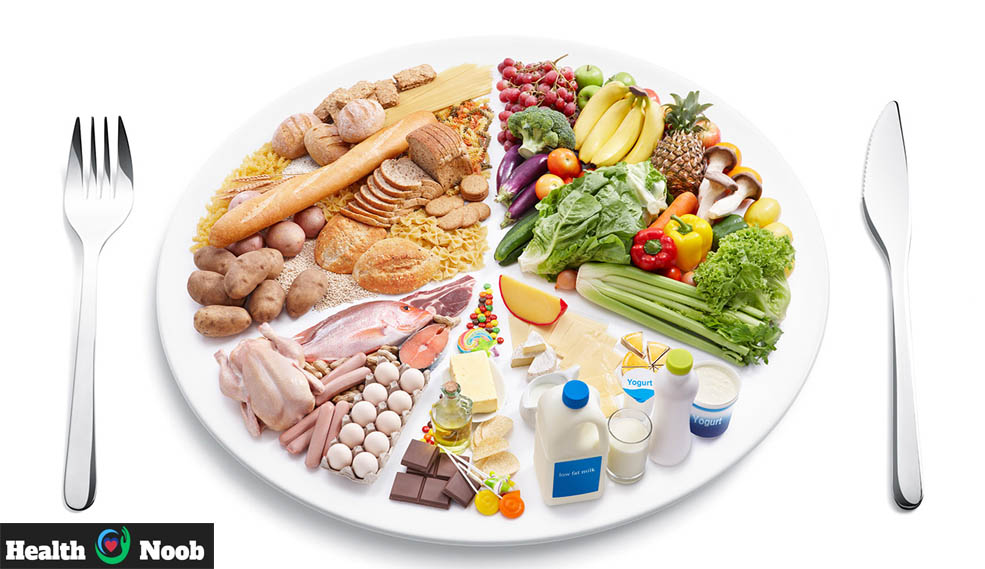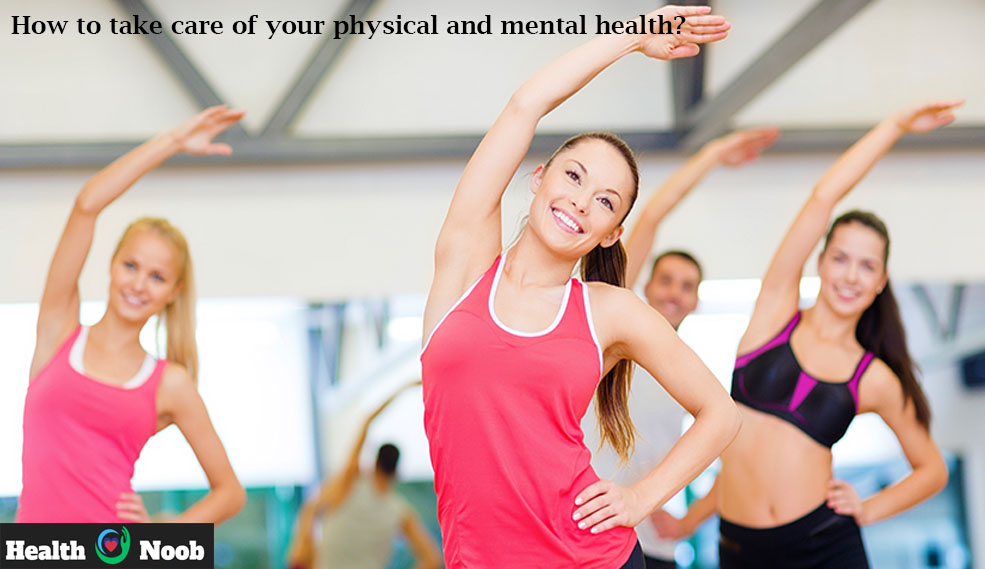Good mental and physical health are necessary for a happy life. Maintaining your physical and mental health is an important part of being healthy and happy generally.
It might sound easy to live a healthy life, but it takes a lot of preparation. Especially at the start, because if we stick with it, these long-term habits turn into routines that help us stop doing things that are bad for us and start doing things that make us feel better in a more natural way.
We at Health Noob put together a list of good habits that you can use to keep your quality of life and physical and mental health high. Some of these are exercise, good diet, fun hobbies, and regular medical checkups. This guide will talk about easy-to-do suggestions that can help you live a healthier life and improve your mental health.
What is health?
Health is the state of a person’s mind and body as a whole. It includes both mental and physical health. Mental health includes things like emotional calm and the ability to think and reason. Physical health includes how well organs, muscles, and systems work. Being healthy means not being sick or hurt and having the energy and strength to do the things you need to do every day. It also includes things like eating a healthy diet, working out regularly, and making sure you get enough rest. Mental health is just as important and includes things like dealing with stress, making friends, and getting help when you need it. To get and stay healthy, you need to make healthy living choices, get regular preventive care, and take care of your physical and emotional needs. Being healthy means being strong, happy, and able to enjoy life to the best.
Physical Health
Physical health includes the health of all of the body’s parts and processes, from the musculoskeletal system to the digestive system, heart, and lungs. Taking care of your body is possible by doing things, sitting up straight, and eating well.
If you don’t take care of your health and don’t move around much, you could end up with stomach ulcers getting worse, acid reflux, or fast weight gain that causes fatty plaques to build up in your arteries, raising your blood pressure and making you more likely to get sick. heart attack.
Mental health
The more subjective part of mental health is the mind, which is where we think and feel about ourselves (mood) and other people (social side). It is more complicated than physical health a lot of the time, and it starts to affect kids when they are very young.
Relationships with mom and dad in the early years, traumatic events, and, believe it or not, even what we eat can change how they normally grow. A bad diet can also affect how the brain grows and develops normally.
If you don’t take care of your mental health, you could get major depression disorder, generalized anxiety disorder, or even Alzheimer’s.
8 healthy habits that will help your body and mind
1. Eat a healthy and nutritious diet
Healthy eating is essential for good health. A balanced diet contains fruits, vegetables, whole grains, lean meats, and healthy fats from all dietary categories. These foods include vitamins, minerals, fiber, and antioxidants to support bodily functions and maximum health.

Include a variety of fruits and vegetables in your diet to acquire a variety of nutrients. Whole grains like brown rice, quinoa, and oats contain fiber and complex carbs that keep you full and energized.
Lean proteins like poultry, fish, beans, and tofu help build and repair tissues, increase muscles, and regulate hormones. Avocados, nuts, seeds, and olive oil provide healthy fats for brain function, hormone production, and fat-soluble vitamin absorption.
Processed foods, sugary snacks, and unhealthy fats can cause weight gain, chronic diseases, and bad health, so minimize them. Nutrition, immunity, and vigor can be achieved by making thoughtful dietary choices and selecting nutrient-rich foods.
2. Activate physically
Working out is one of the best ways to form good habits because it’s easy to incorporate into your daily life. You can work out with aerobic or anaerobic energy:
Aerobics: Aerobics are moderate to easy, but they last a long time. The fat in your stomach and legs may be broken down by them. Some of these are running, swimming, and riding.
Anaerobic: Anaerobic means they are very hard and don’t last long. To do them, you need to be very strong, and the goal is to build muscle and tone certain parts of your body. Weightlifting, sit-ups, squats, high-speed runs, and many more are some of these.
Most of the time, you should do both as part of healthy living to get the most out of it.
New studies show that regular exercise may boost the immune system’s activity, which stops the growth and worsening of infectious diseases.
3. Avoid alcohol consumption

Alcohol can be consumed on specific occasions such as events or parties. However, remember that your consumption should not exceed 150 ml (5 ounces) of wine, 350 ml (12 ounces) of beer, or 230 to 260 ml (8 to 9 ounces) of liquor, as it could have harmful effects on the body health.
The most well-known effects of alcohol happen in the nervous system, where they work as neuro depressants to make people sleepy, relax, and in very high amounts, even go into a coma. It is important to avoid tolerance and dependence because once they happen, a person can’t feel happy if they don’t drink alcohol over and over again, and they need higher doses of alcohol each time to get the same effect, which makes them more toxic in the long run.
Also, the liver breaks down alcohol, and large amounts cause the production of free radicals and other harmful molecules that damage the liver’s regular structure and can eventually cause cirrhosis or even cancer.
4. Get enough sleep
During normal sleep, there are different NREM stages and a REM period that happens every hour and a half. You should make sure you get at least 6 hours of sleep every day; 8 hours is best. These processes are important for forming memories, repairing cells, and keeping hormones in check, so you should pay attention to your sleep hours.
Even though insomnia is one of the most common health problems in the world right now, here are some tips that can help you sleep through the night:
- At least an hour before bed, spend less time in bright lights: The light from cell phones and TVs makes our brains think it’s still daytime, which keeps us from falling asleep. So if you lower it before bed, your brain learns that it’s almost time for bed, which makes it easier to fall asleep a few minutes after you go to sleep.
- Arrange your room: How you set up your room is important for getting to sleep and staying asleep. It would help if you had a nice bed of the right size, clean sheets, a cool room (not too hot or too cold), and not too much noise.
- Exercise: When we work out, our brains release serotonin and dopamine, which make us feel good and help us sleep well. Training in the morning is best for this effect because it happens during training hours. This effect will be strongest at night. Do not work out right before bed.
- Relaxing activities: before bed, don’t watch scary movies or do things that make you stressed. Instead, take a hot bath, make some tea (chamomile or rooibos is best for sleep), and listen to soothing music. This will help you fall asleep quickly and soundly.
- Go to bed at the same time every day: Our hypothalamus creates the famous circadian cycle, like a clock in our brains that makes us wake up, eat, and go to bed at about the same time every day. It can have a big effect on how many hours you sleep if you change it quickly.
Most people find that these tips help them sleep better, either partially or completely. You should see a doctor who specializes in sleep disorders if these don’t help. They can give you more personalized answers that will work best for you.
5. Control stress
Stress has been linked to several bad things that happen in our bodies, such as a weakened immune system, gastritis, sleeplessness, high blood pressure, and more.
If you want to lessen these negative effects, we suggest that you do some relaxing activities like yoga, meditation, and regular exercise. Also, taking time off work is important to avoid panic episodes and depression.
6. Take care of your hygiene
Taking care of your cleanliness is an important part of being healthy. For example, taking regular showers stops bacteria from growing on your skin, and brushing your teeth at least three times a day stops cavities from forming.
7. Visit your doctor periodically
Depending on your age, you should get regular check-ups with a doctor to make sure you stay healthy. This could mean getting a mammogram every year if you are a woman over 40 or a prostate exam if you are a man over 50.
Around the world, many diseases don’t show any symptoms and can only be found early by getting medical care.
9. Hydrate and drink enough water

Remember to bring water with you at all times. Even easy things like breathing can cause you to lose millimeters of water. Dehydration can lead to headaches, low blood pressure, and even problems with the kidneys. So, every day try to drink at least 2 liters of water.
As a way to stay refreshed, we suggest that you drink a glass of water as soon as you wake up, before each meal, and before bed.
FAQ
What should be healthy for physical and mental health?
Exercise. Doing physical activities is a great way to keep your body fit and make you feel better mentally. Endorphins are chemicals in the brain that make you feel good. Exercise releases them. Even just 10 minutes of fast walking can make you feel better, give you more energy, and keep your mind sharp.
What are the 7 pillars of self-care?
Each way to take care of yourself falls under one of the seven pillars: physical, mental, emotional, spiritual, fun, and social. Each of these is an important part of a well-balanced self-care habit, so don’t pick just one or two.
What is the 10 importance of mental health?
Having good mental health helps us get along better with the people in our lives. We can be more productive at work and reach our full ability when our mental health is good. Being mentally healthy lets us make important contributions to our family, neighborhood, and society as a whole.
Conclusion
Maintaining your physical and mental health requires simple but effective habits like regular exercise, balanced nutrition, proper sleep, and stress management. Listen to your body, prioritize self-care, and seek support when required. Making simple, sustainable lifestyle adjustments and being attentive to your emotional well-being can improve your quality of life and bring enduring health and happiness.
Weight Loss Post:
Best 12 proven tips to lose weight!
10 exercises to lose weight and how many calories they burn






